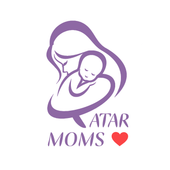While pregnancy can be one of the most beautiful phases of a woman's life, it can also be overwhelming, especially for first-time mothers. Understanding pregnancy can be difficult.
There is no way to guarantee that you will not fall victim to some of the most common mistakes that every expectant mother (especially first-time mums) makes, even if you are aware of the right eating habits, exercise, and other aspects of pregnancy. Still, it is not too late for you to rectify your mistakes and get back on track. Let's look at some of the common mistakes pregnant women make.
1. Eating for two:
Are you really convinced that a tiny fetus growing inside you would need so many calories daily to grow and develop? Of course not. Your baby requires good nutrition. A good rule of thumb is that you need only 300 more calories than you normally consume. So, You need approximately 1800 to 2000 calories per day. Being overweight during pregnancy puts you at risk for conditions such as preeclampsia and gestational diabetes, and it could require you to undergo a C-section. You may also experience various other health problems after giving birth.
Consider your diet if you have been eating a lot while claiming pregnancy as an excuse. You should eat three portions of fruits, greens, and raw vegetables, as well as nuts and eggs for protein. Throughout the day, you should eat six small balanced meals and stay hydrated. Consuming healthy food will help you restrict your diet to only what is absolutely necessary and control your cravings.
2. Self medication:
When pregnant, you should not use antacids, paracetamol, or even acne creams. Because self-medication can adversely affect your pregnancy. Self-medication, over-the-counter medications, and harsh beauty treatments may cause congenital abnormalities in your baby.
You should not self-medicate during pregnancy at all costs. Only take pills as prescribed by your doctor. If you notice that your prenatal vitamins and iron doses are making you feel nauseated, ask your doctor about changing brands. Vitamins and iron supplements are necessary to meet the requirements and cannot be ignored. Consider getting professional help if your problems include acidity, headaches, and acne.
Read| The Benefits of wearing a postpartum belly wrap
3. Lack of sleep:
It is not a good idea to sacrifice sleep to achieve a work-life balance during pregnancy. The hormonal and physical changes that occur within your body during pregnancy demand more rest. In fact, you would experience more pregnancy fatigue if you didn't get enough sleep. Make up for all the sleep deficit you have, because you will have to be physically fit enough to deal with the strains of labour and delivery. Sleep and rest are important, but exercise is just as important if you want to prepare your body for the arduous journey of labour.
4. Avoiding comfort foods:
If you limit your sugar intake, you'll reduce the risk of developing gestational diabetes and other related problems, but if you stress yourself out because you can't have your favorite sugary treat, you'll only increase your anxiety levels, which in turn can negatively affect your baby.
5. Avoiding Exercise
Exercise during pregnancy is just as important as eating healthy food. Keep up with a good exercise routine to fight stress hormones, boost circulation, prepare the body for labour and delivery, and promote fetal growth and development. Walking, jogging, pelvic floor exercises, and others are pregnancy-safe exercises.
6. Wearing the wrong shoes
When the belly is the largest in The last trimester of pregnancy, it may cause balance issues. So, it is not advisable to wear high heels or other such inappropriate footwear. As your center of gravity shifts, ligaments loosen, increasing your risk of tripping or falling. Wearing the wrong footwear increases that risk, putting you at risk for accidents, which may have unfortunate effects on your pregnancy.
7. Ignoring Car Safety
Especially during the third trimester, wearing a seatbelt is recommended. If you are pregnant or not, it is quite important to wear a lap and shoulder belt while driving a car or riding in a passenger seat to protect you from accidents.
There are many mothers who fear that the pressure from the seatbelt may harm their babies. However, a car seat belt worn properly is completely safe. You should wear the lap belt below your belly so that you won't feel uncomfortable. In this way, you and your baby will be safe.
Finally, Make a note to avoid the mistakes listed above. By doing so, you ensure safety for you and your unborn child during the final weeks of pregnancy. Also, you have to be sure to educate yourself on some helpful pregnancy tips on nutrition, exercise, and safety.
 FREE DELIVERY FOR ORDERS ABOVE 100 QAR
FREE DELIVERY FOR ORDERS ABOVE 100 QAR DELIVERY WITHIN 3 HOURS
DELIVERY WITHIN 3 HOURS APPLE PAY AND CARD PAYMENT AVAILABLE
APPLE PAY AND CARD PAYMENT AVAILABLE



